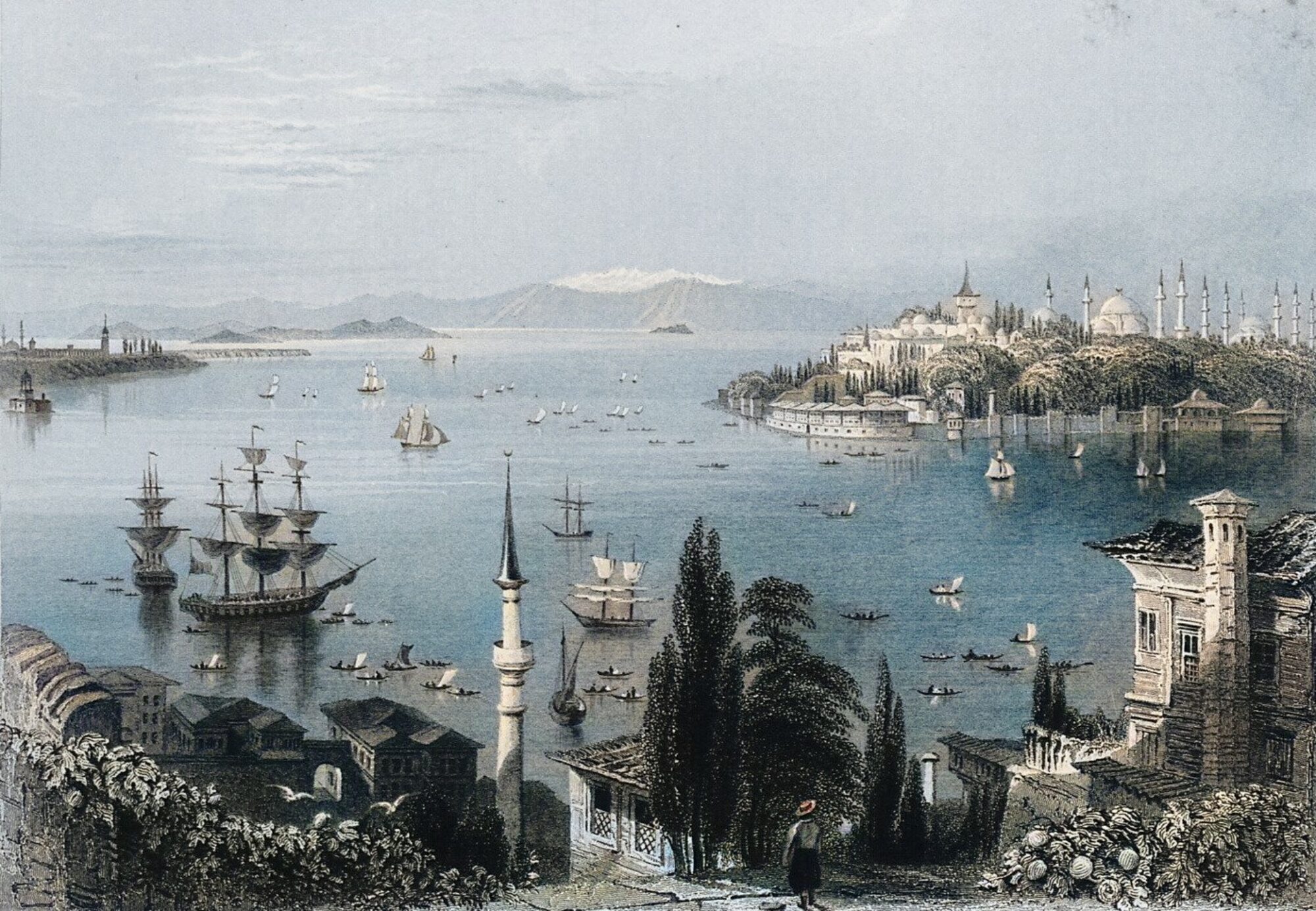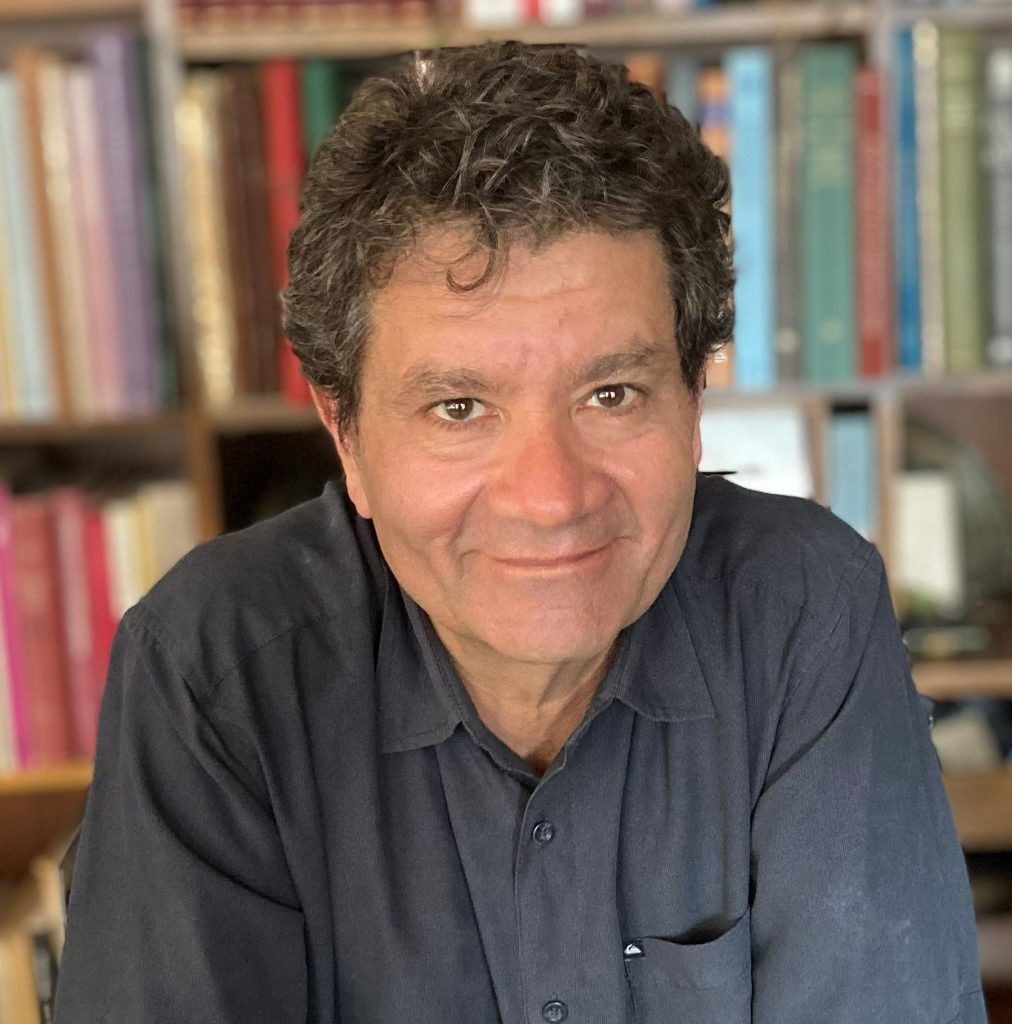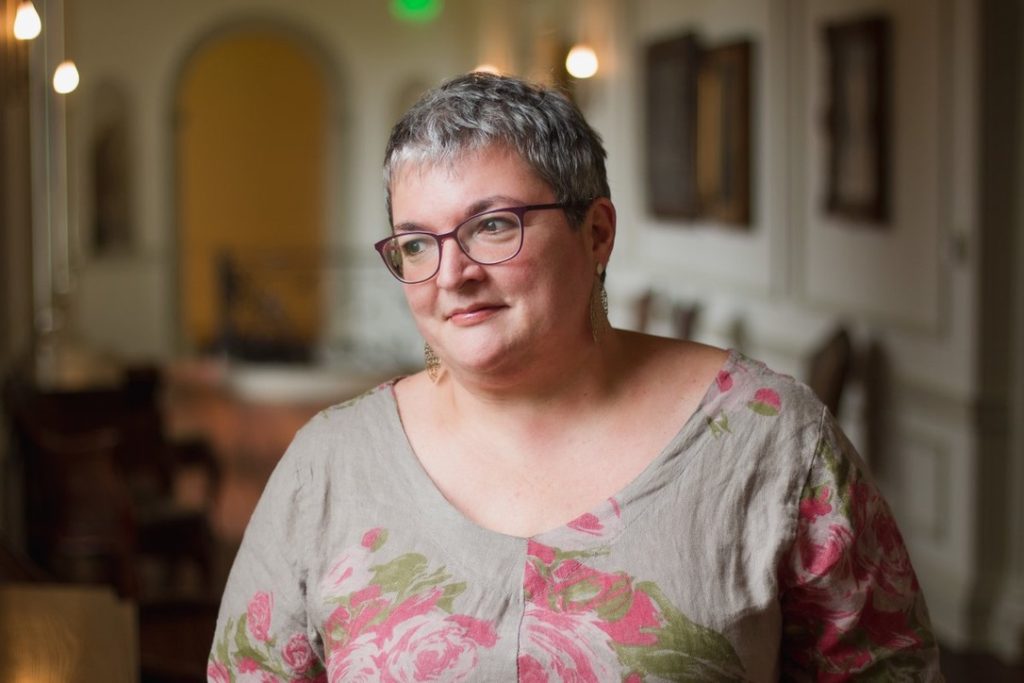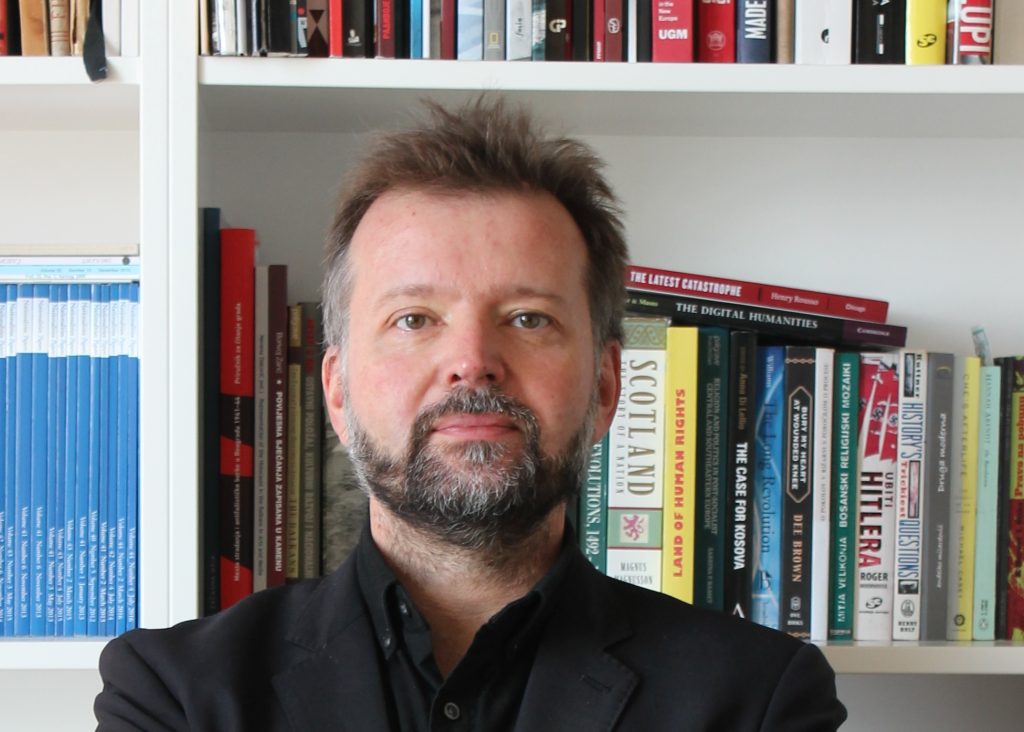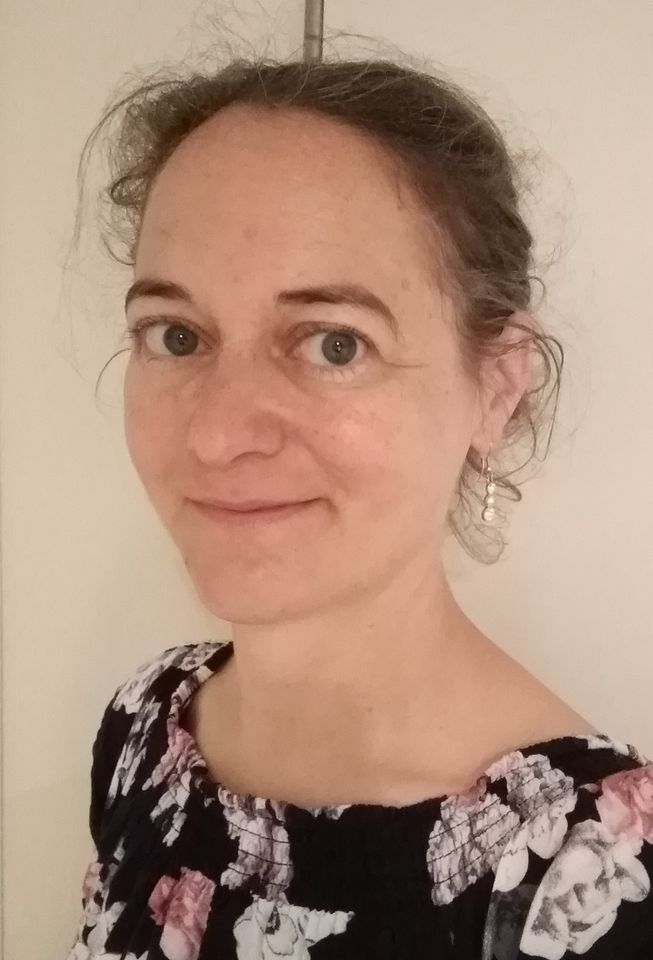Ulf BRUNNBAUER, Academic Director of the Leibniz Institute for East and Southeast European Studies in Regensburg, holds a PhD in history from the University of Graz, Austria (1999). In 2006, he was awarded a habilitation by the Free University of Berlin, and since 2008 he is Chair of Southeast and East European History at the University of Regensburg. His most recent books include “In den Stürmen der Transformation” (2022, with Philipp Ther and others) and “The Routledge Handbook of Balkan and Southeastern European History” (2021, ed. with John Lampe). He is also author of “Globalizing Southeastern Europe. Emigrants, America and the State since the 19th Century” (2016).
Shannon Lee DAWDY is Professor and Chair at the Department of Anthropology, University of Chicago. Dawdy’s fieldwork combines archival, ethnographic, and archaeological methods in the U.S. and Latin America (PhD from University of Michigan, Anthropology and History). Although diverse, her work circles around how landscapes and material objects mediate human relationships and how shared cultural experiences affect our perceptions of time (past, present, future). Topically she has researched and written about informal economies and piracy, histories of colonialism and capitalism, gender and sexuality in urban space, death, and disaster. Theoretically, she considers Walter Benjamin to be an adopted uncle and she currently has a crush on the French existentialists. Dawdy is the author of Building the Devil’s Empire: French Colonial New Orleans (University of Chicago Press, 2008), Patina: A Profane Archaeology (University of Chicago Press, 2016), and American Afterlives: Reinventing Death in the Twenty-first Century (Princeton University Press, 2021). She is currently working on the futurism of archives and deep time projects in the Arctic (Svalbard, Norway).
Edhem ELDEM teaches at the Department of History of Boğaziçi University, Istanbul. He has also taught at Berkeley, Harvard, EHESS, EPHE, ENS, Columbia and has held the International Chair of Turkish and Ottoman Studies et the Collège de France. He was a fellow at the Wissenschaftskolleg zu Berlin, Bonn University and Ludwig-Maximilians University, Munich.
Among his fields of interest are the Levant trade in the eighteenth century, Ottoman funerary epigraphy, the development of an urban bourgeoisie in Istanbul, the history of the Ottoman Bank, the history of archaeology in the Ottoman Empire, late-nineteenth-century Ottoman first-person narratives and biographies, and the history of photography in the Ottoman Empire.
His publications include: French Trade in Istanbul in the Eighteenth Century (1999); A History of the Ottoman Bank (1999); The Ottoman City between East and West: Aleppo, Izmir and Istanbul (1999, with D. Goffman and B. Masters); La Méditerranéee turque (2000, with F. Çiçekoğlu); Pride and Privilege. A History of Ottoman Orders, Medals and Decorations (2004); Death in Istanbul. Death and its Rituals in Ottoman-Islamic Culture (2005); Consuming the Orient (2007); L’épitaphe ottomane musulmane XVIe-XXe siècles (2007, with N. Vatin); Un Ottoman en Orient. Osman Hamdi Bey en Irak (1869-1871) (2010); Le voyage à Nemrud Dağı d’Osman Hamdi Bey et Osgan Efendi (2010); Scramble for the Past: A Story of Archaeology in the Ottoman Empire, 1753-1914 (2011, with Z. Bahrani and Z. Çelik); Mendel-Sebah: Documenting the Imperial Museum (2014); Camera Ottomana. Photography and Modernity in the Ottoman Empire, 1870-1914 (2015, with Z. Çelik); L’Empire ottoman et la Turquie face à l’Occident (2018); L’Alhambra. À la croisée des histoires (2021); L’Empire ottoman (2022).
Andre GINGRICH is a socio-cultural anthropologist with specializations in the ethnography and historical anthropology of South West Arabia and of Central Europe, in comparative and historical methodologies, and in the history of anthropology in German. He served as Full Professor at the University of Vienna (until 2017), as visiting professor at UMassBoston, UChicago, NUI Maynooth, and at SAR (Santa Fe). After serving on the Scientific Advisory Board of the Wenner Gren Foundation until 2000, he was a Panel Chair (SH2, AdvGr) between 2008 and 2013 at the European Research Council. Gingrich is also a founding member of the European Association of Social Anthropologists (EASA), a Fellow of the British Academy, an International Member of the Royal Swedish and a Full Member of the Austrian Academies of Sciences. His best known publications address “Anthropology, by Comparison” (co-edited, 2002), “Frontier Orientalism” (1998, 2010, 2013), “Neo-nationalism in Western Europe and Beyond” (co-edited, 2006) and (three co-edited volumes 2021, in German) the record of socio-cultural anthropology from Vienna during the Nazi years.
Bruce GRANT is Professor and Chair of Anthropology at New York University. A specialist on cultural politics in the former Soviet Union, he has done fieldwork in both Siberia and the Caucasus. He is author of In the Soviet House of Culture: A Century of Perestroikas (Princeton 1995), a study of the Sovietization of an indigenous people on the Russian Pacific coast, and winner of the Prize for Best First Book from the American Ethnological Society; as well as The Captive and the Gift: Cultural Histories of Sovereignty in Russia and the Caucasus (Cornell 2009), on the making of the Caucasus in the Russian popular imagination. He was co-editor of Caucasus Paradigms: Anthropologies, Histories, and the Making of a World Area (LIT 2007) and The Russia Reader: History, Culture, Politics (Duke 2010). His current research explores the twenty-first century of the city of Baku, Azerbaijan, and early twentieth-century, pan-Caucasus journal Molla Nasreddin (1905-1931) as an idiom for rethinking contemporary Eurasian space and authoritarian rule within it.
He has been the recipient of grants from the American Philosophical Society, the American Council of Learned Societies, the John Simon Guggenheim Foundation, NCEEER (the National Council for East European and Eurasian Research), NEH, NSF, and the Wenner-Gren Foundation for Anthropological Research. He is a recent past president of the Society for Cultural Anthropology, interdisciplinary wing of the American Anthropological Association; and ASEEES, the Association for Slavic, East European, and Eurasian Studies.
Maura HAMETZ is a Professor of History at James Madison University, Virginia, USA. She earned her BA at Colgate University and PhD at Brandeis University. Her research focuses on the Adriatic provinces in the late Habsburg empire and Italy from the nineteenth century to the present with emphasis on the intersections of politics, religion, culture, law, ethnicity, and national identity. She is the author of Making Trieste Italian, 1918-1954 (Royal Historical Society, 2005), In the Name of Italy: Nation, Family, and Patriotism in a Fascist Court (Fordham U. Press, 2012) and co-editor of Sissi’s World: The Empress Elisabeth in Myth and Memory (Bloomsbury, 2018) and Jewish Intellectual Women in Central Europe (Mellen, 2012). She is currently working on projects on citizenship in the eastern borderlands after World War I, fascist violence and the 1930 Il Popolo bombing, and the Risiera di San Sabba and legacies of the Nazi Lager in Trieste.
Zeynep KEZER, Professor, is the Post-Graduate Research Director at the School of Architecture Planning at Newcastle University (UK). She holds a B. Arch. from Middle East Technical University in Ankara and an M Arch and a PhD in Architecture from UC Berkeley. She is interested in the spatial and environmental dimension of modern state formation processes with a specific emphasis on Turkey. Her current book project, tentatively titled, “Engineering Eastern Turkey: People, Place and Power in the Upper Euphrates Basin,” examines how state penetration during the twentieth century transformed the cultural landscapes of a region that had historically been home to a population that was ethnically and confessionally diverse and almost semiautonomous. She has published numerous articles in books and academic journals, and a monograph entitled Building Modern Turkey: State Space and Ideology in the Early Republic (University of Pittsburgh Press, 2016). Professor Kezer has been the recipient of grants and fellowships from the Fulbright Commission, the University of California, University of Nebraska-Lincoln, Killam Foundation, Cecil H. and Ida M. Green Foundation, the J Paul Getty Foundation, the British Academy, the Aga Khan Program for Islamic Architecture, and most recently the Dumbarton Oaks Research Library. She is on the editorial boards of Architectural Research Quarterly (Cambridge), International Journal of Islamic Architecture (Ingenta), and is also one of the founding editors of PLATFORM.
Vjeran PAVLAKOVIĆ is a full professor at the Department of Cultural Studies at the University of Rijeka, Croatia. He received his Ph.D. in History in 2005 from the University of Washington, and has published articles on cultural memory, transitional justice in the former Yugoslavia, and Yugoslav volunteers in the Spanish Civil War. He is a co-editor of the volume Framing the Nation and Collective Identity in Croatia (Routledge, 2019), which was re-issued in Croatian in 2022. He was the lead researcher on the Memoryscapes project as part of Rijeka’s European Capital of Culture in 2020 and a co-founder of the Cres Summer School on Transitional Justice and Memory Politics, as well as a researcher for Rijeka/Fiume in Flux. Current research includes the transnational muralization of conflict and a history of Dalmatian immigrants in the American Southwest, which explores the trajectories of former Habsburg imperial subjects re-inventing themselves as a driving force in the Americanization of US borderlands.
Tamara SCHEER is a historian at the Institute for East European History/University of Vienna, formerly at Ludwig Boltzmann Institute for Historical Social Science (Vienna), and Andrássy University Budapest. She is a Board Member of: Slovanský přehled /Slavonic Review and Istraživanja, Journal of Historical Researches. Her research focuses on Austria-Hungary, First World War, State of Emergency, Imperial Diversity (i.p. Army and Roman Catholic Church), and Nationalism. Currently she is also head of a research project at Pontifical Institute Santa Maria dell’ Anima (Rome): “Identification of 450 Austro-Hungarian Soldiers in the Crypt of Santa Maria dell’ Anima in Rome”. Her most recent monograph is titled “Die Sprachenvielfalt in der k.u.k. Armee (1867-1918)” (Wien, BMLV, 2022), with open access in English: “Language and Loyalty in the Habsburg Army, 1867-1918”: https://utheses.univie.ac.at/detail/57914#
Her other monographs include: Die Ringstraßenfront – Österreich-Ungarn, das Kriegsüberwachungsamt und der Ausnahmezustand während des Ersten Weltkriegs (Wien 2010); Zwischen Front und Heimat: Österreich-Ungarns Militärverwaltungen im Ersten Weltkrieg (Frankfurt et al. 2009); “Minimale Kosten, absolut kein Blut!”: Österreich-Ungarns Präsenz im Sandžak von Novipazar (1879-1908) (Frankfurt et al. 2013).
Her other recent publications are: Tamara Scheeer, Markian Prokopovych, Carl Bethke (eds.), Language Diversity in the Late Habsburg Empire, Brill: Leiden, 2019; Tamara Scheer, Clemens Ruthner (Hg.), Österreich-Ungarn und Bosnien-Herzegowina, 1878-1918: Annäherungen an eine Kolonie, Tübingen: Francke 2018; Rok Stergar, Tamara Scheer: Ethnic Boxes. The Unintended Consequences of Habsburg Bureaucratic Classification, in: Nationalities Papers: The Journal of Nationalism and Ethnicity, 46, 4, 2018, 575-591.
